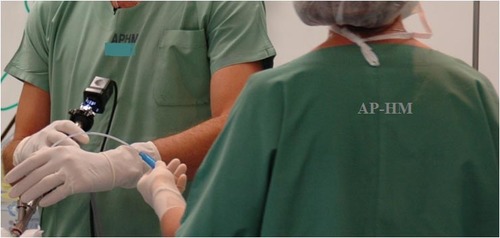Sylvia Hartl: As Head of a respiratory department in Austria, I care for patients suffering from lung cancer. In my country, the respiratory physician is the case manager of lung cancer, responsible for diagnostic procedures and treatment of any kind. Around 30–40% of our consultations are due to lung cancer treatment.
After years of a bleak outlook for treatment options, including failure of early diagnosis, a limited spectrum of chemotherapies available, the rate of response and the toxic side effects, exciting innovations in therapeutic concepts from research into clinical practice are evolving.
These innovations have led to changes in clinical treatment standards:
- More biopsy material is required for cancer immune profiling in every patient before therapy decisions.
- Specialists need to be informed about the latest evidence.
- Palliative innovative methods like endoscopic thermic tumour reduction, repetitive bronchoscopic laser coagulation and stent implantation are now offered to stabilise the health status of patients in the advanced stages of the disease who are excluded from surgery.
In Austria, we have decided to form the Austrian Lung Cancer Group (ALCG), affiliated to the Austrian Respiratory Society, aiming to raise the quality standards in all respiratory departments dealing with lung cancer treatment.
The first step was to commit every lung cancer centre to participate in a lung cancer audit to assess treatment standards. From these results, each centre could evaluate its potential for improvement. Some of the centres committed themselves to collaborate to create educational standards for trainee nurses and to raise awareness via the ALCG amongst the public about how we can avoid inequality of care in the future.
In a small country like Austria, such alliances of lung cancer centres will help to influence decisions on regulation of access to therapy via our outcome data.
Every cancer patient is a multidisciplinary challenge: thoracic oncology boards of all specialists involved in potential therapy options have to be implemented to guarantee the optimum handling of the patient and avoid inefficient cost explosions.
Concerns have been raised about the evolving costs of lung cancer treatments in the light of economic constraints. Innovative therapy, especially immune therapy, increases the costs per patient substantially. So far, only small, specific groups of patients at an advanced disease stage are eligible for such drugs, but other drugs will follow and the numbers of eligible patients will rapidly increase. European healthcare regulation might even be overruling country policies regarding cost effectiveness of lung cancer treatment, which could introduce the threat of medicine tourism of EU citizens.
The role of the European Respiratory Society in defending respiratory oncology and its quality is crucial as it can act as a backbone to support local respiratory societies. ERS has published a HERMES syllabus and several position papers on the role of the respiratory physician in oncology to strengthen the voice of respiratory specialists in Europe.
In Austria, the number of bronchial carcinoma patients is still growing, therefore, the role of respiratory specialists is now very prominent in oncology – a role that we hope to share with many European countries!
Suggested reading:
Are you an MD specialised in asthma or COPD?
You may be interested in the new ERS Fellowship in Industry, offering new opportunities to MDs, young scientists and researchers to gain experience in the European respiratory pharmaceutical industry.





